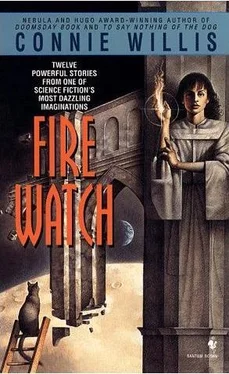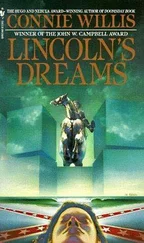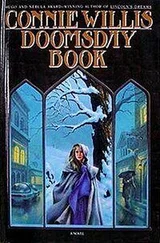“It’s no use,” he said, breathing hard. “I put it out.”
I spared him a startled glance, afraid that he was delirious and went back to rolling him onto his side.
“I know you were counting on this one,” he went on, not resisting me at all. “It was bound to happen sooner or later with all these roofs. Only I went after it. What’ll you tell your friends?”
His asbestos coat was torn down the back in a long gash. Under it his back was charred and smoking. He had fallen on the incendiary. “Oh, my God,” I said, trying frantically to see how badly he was burned without touching him. I had no way of knowing how deep the burns went, but they seemed to extend only in the narrow space where the coat had torn. I tried to pull the bomb out from under him, but the casing was as hot as a stove. It was not melting, though. My sand and Langby’s body had smothered it. I had no idea if it would start up again when it was exposed to the air. I looked around, a little wildly for the bucket and stirrup pump Langby must have dropped when he fell.
“Looking for a weapon?” Langby said, so clearly it was hard to believe he was hurt at all. “Why not just leave me here? A bit of overexposure and I’d be done for by morning. Or would you rather do your dirty work in private?”
I stood up and yelled to the men on the roof above us. One of them shone a pocket torch down at us, but its light didn’t reach.
“Is he dead?” somebody shouted down to me.
“Send for an ambulance,” I said. “He’s been burned.”
I helped Langby up, trying to support his back without touching the burn. He staggered a little and then leaned against the wall, watching me as I tried to bury the incendiary, using a piece of the planking as a scoop. The rope came down and I tied Langby to it. He had not spoken since I helped him up. He let me tie the rope around his waist, still looking steadily at me. “I should have let you smother in the crypt,” he said.
He stood leaning easily, almost relaxed against the wooden supports, his hands holding him up. I put his hands on the slack rope and wrapped it once around them for the grip I knew he didn’t have. “I’ve been onto you since that day in the Gallery. I knew you weren’t afraid of heights. You came down here without any fear of heights when you thought I’d ruined your precious plans. What was it? An attack of conscience? Kneeling there like a baby, whining, 'What have we done? What have we done?’ You made me sick. But you know what gave you away first? The cat. Everybody knows cats hate water. Everybody but a dirty Nazi spy.”
There was a tug on the rope. “Come ahead,” I said, and the rope tautened.
“That WVS tart? Was she a spy, too? Supposed to meet you in Marble Arch? Telling me it was going to be bombed. You’re a rotten spy, Bartholomew. Your friends already blew it up in September. It’s open again.”
The rope jerked suddenly and began to lift Langby. He twisted his hands to get a better grip. His right shoulder scraped the wall. I put up my hands and pushed him gently so that his left side was to the wall. “You’re making a big mistake, you know,” he said. “You should have killed me. I’ll tell.”
I stood in the darkness, waiting for the rope. Langby was unconscious when he reached the roof. I walked past the fire watch to the dome and down to the crypt.
This morning the letter from my uncle came and with it a five-pound note.
December 31— Two of Dunworthy’s flunkies met me in St. John’s Wood to tell me I was late for my exams. I did not even protest. I shuffled obediently after them without even considering how unfair it was to give an exam to one of the walking dead. I had not slept in how long? Since yesterday when I went to find Enola. I had not slept in a hundred years.
Dunworthy was in the Examination Buildings, blinking at me. One of the flunkies handed me a test paper and the other one called time. I turned the paper over and left an oily smudge from the ointment on my burns. I stared uncomprehendingly at them. I had grabbed at the incendiary when I turned Langby over, but these burns were on the backs of my hands. The answer came to me suddenly in Langby’s unyielding voice. “They’re rope burns, you fool. Don’t they teach you Nazi spies the proper way to come up a rope?”
I looked down at the test. It read, “Number of incendiaries that fell on St. Paul’s—Number of land mines—Number of high explosive bombs—Method most commonly used for extinguishing incendiaries land mines—high explosive bombs—Number of volunteers on first watch—second watch Casualties Fatalities—” The questions made no sense. There was only a short space, long enough for the writing of a number, after any of the questions. Method most commonly used for extinguishing incendiaries. How would I ever fit what I knew into that narrow space? Where were the questions about Enola and Langby and the cat?
I went up to Dunworthy’s desk. “St. Paul’s almost burned down last night,” I said. “What kind of questions are these?”
“You should be answering questions, Mr. Bartholomew, not asking them.”
“There aren’t any questions about the people,” I said. The outer casing of my anger began to melt.
“Of course there are,” Dunworthy said, flipping to the second page of the test. “Number of casualties, 1940. Blast, shrapnel, other.”
“Other?” I said. At any moment the roof would collapse on me in a shower of plaster dust and fury. “Other? Langby put out a fire with his own body. Enola has a cold that keeps getting worse. The cat…” I snatched the paper back from him and scrawled “one cat” in the narrow space next to “blast.” “Don’t you care about them at all?”
“They’re important from a statistical point of view,” he said, “but as individuals they are hardly relevant to the course of history.”
My reflexes were shot. It was amazing to me that Dunworthy’s were almost as slow. I grazed the side of his jaw and knocked his glasses off. “Of course they’re relevant!” I shouted. “They are the history, not all these bloody numbers!”
The reflexes of the flunkies were very fast. They did not let me start another swing at him before they had me by both arms and were hauling me out of the room.
“They’re back there in the past with nobody to save them. They can’t see their hands in front of their faces and there are bombs falling down on them and you tell me they aren’t important? You call that being an historian?”
The flunkies dragged me out the door and down the hall. “Langby saved St. Paul’s. How much more important can a person get? You’re no historian! You’re nothing but a—” I wanted to call him a terrible name, but the only curses I could summon up were Langby’s. “You’re nothing but a dirty Nazi spy!” I bellowed. “You’re nothing but a lazy bourgeois tart!”
They dumped me on my hands and knees outside the door and slammed it in my face. “I wouldn’t be an historian if you paid me!” I shouted, and went to see the fire watch stone.
December 31— I am having to write this in bits and pieces. My hands are in pretty bad shape, and Dunworthy’s boys didn’t help matters much. Kivrin comes in periodically wearing her St. Joan look, and smears so much salve on my hands that I can’t hold a pencil.
St. Paul’s Station is not there, of course, so I got out at Holbom and walked, thinking about my last meeting with Dean Matthews on the morning after the burning of the city. This morning.
“I understand you saved Langby’s life,” he said. “I also understand that between you, you saved St. Paul’s last night.”
I showed him the letter from my uncle and he stared at it as if he could not think what it was. “Nothing stays saved forever,” he said, and for a terrible moment I thought he was going to tell me Langby had died. “We shall have to keep on saving St. Paul’s until Hitler decides to bomb something else.”
Читать дальше












